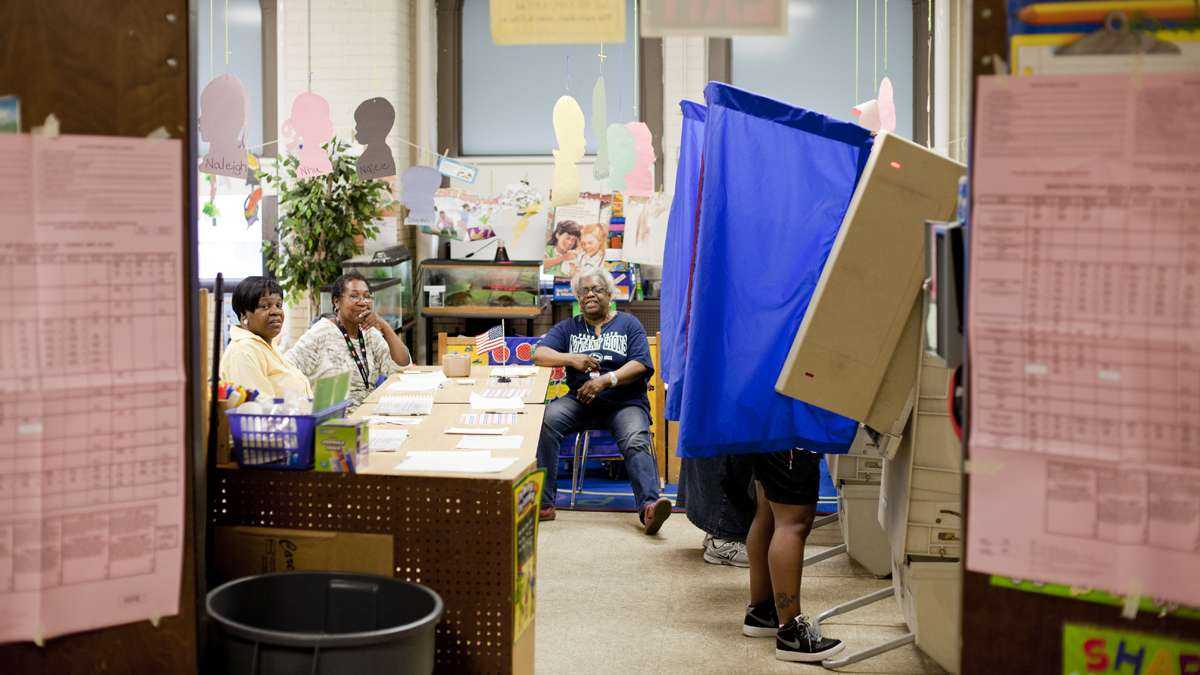Post-Trump activism isn’t showing up in Philly election boards

Every four years, Philadelphia voters elect members of neighborhood election boards, the folks who sit at folding tables and run polling places.(Brad Larrison/for NewsWorks, file)
The election of Donald Trump is often said to have spurred a new wave of political activism — particularly among progressive Democrats — and a stronger interest in running for local office.
By one small measure at least, that’s not proving true in Philadelphia.
Every four years, voters elect members of neighborhood election boards, the folks who sit at folding tables and run polling places.
At a Center City church in January, I saw more than 400 people show up when a group called the Philadelphia Democratic Progressive Committee offered a session on running for local offices, including election boards.
Several people I talked to said they were interested, and Joe Driscoll, one of the organizers of the event, said they’d recruited about a hundred people to run for positions on the election boards.
But when I checked with the City Commissioners, the citywide board that oversees elections, I learned there are actually fewer candidates for local election board than there were four years ago: 853 Democrats filed to run for election judge, down about 16 percent from 2013.
The Republican decline was even more precipitous; 102 of them filed, a 53 percent drop from four years ago.
City Commission co-chair Al Schmidt said he was surprised.
“There appears to be a lot of people after the presidential election engaged in the political process and civic participation,” Schmidt said. “But, so far at least, it hasn’t translated into more people running for these positions, and it’s very easy to get on the ballot, and it only takes a few votes to win.”
Chronic shortage
A little math will tell you that the candidates running for election board are well short of what you need to staff 1,686 voting divisions.
If there is no elected judge of election or other members of the board, people from that division can apply and become a court-appointed member of the board.
If there aren’t court-appointed members, then there can be a “curbside election” on the morning of Election Day at which those who show up — probably local party committeepeople — can hold an election and decide how they’ll staff the polling place.
I’ve heard of these things for years, but never seen one.
Driscoll said it’s a little disappointing to see the number of candidates down.
“But we really do have to change the conditions for our election board officials,” he said. “To sit there for 13, 14 hours for a hundred dollars is what, minimum wage?”
“We have to pay them more, we have to train them better, and advertise more, so people know about election boards,” he said.
But Driscoll said he’s proud of the Democratic Progressive Committee’s recruitment and training efforts.
WHYY is your source for fact-based, in-depth journalism and information. As a nonprofit organization, we rely on financial support from readers like you. Please give today.


